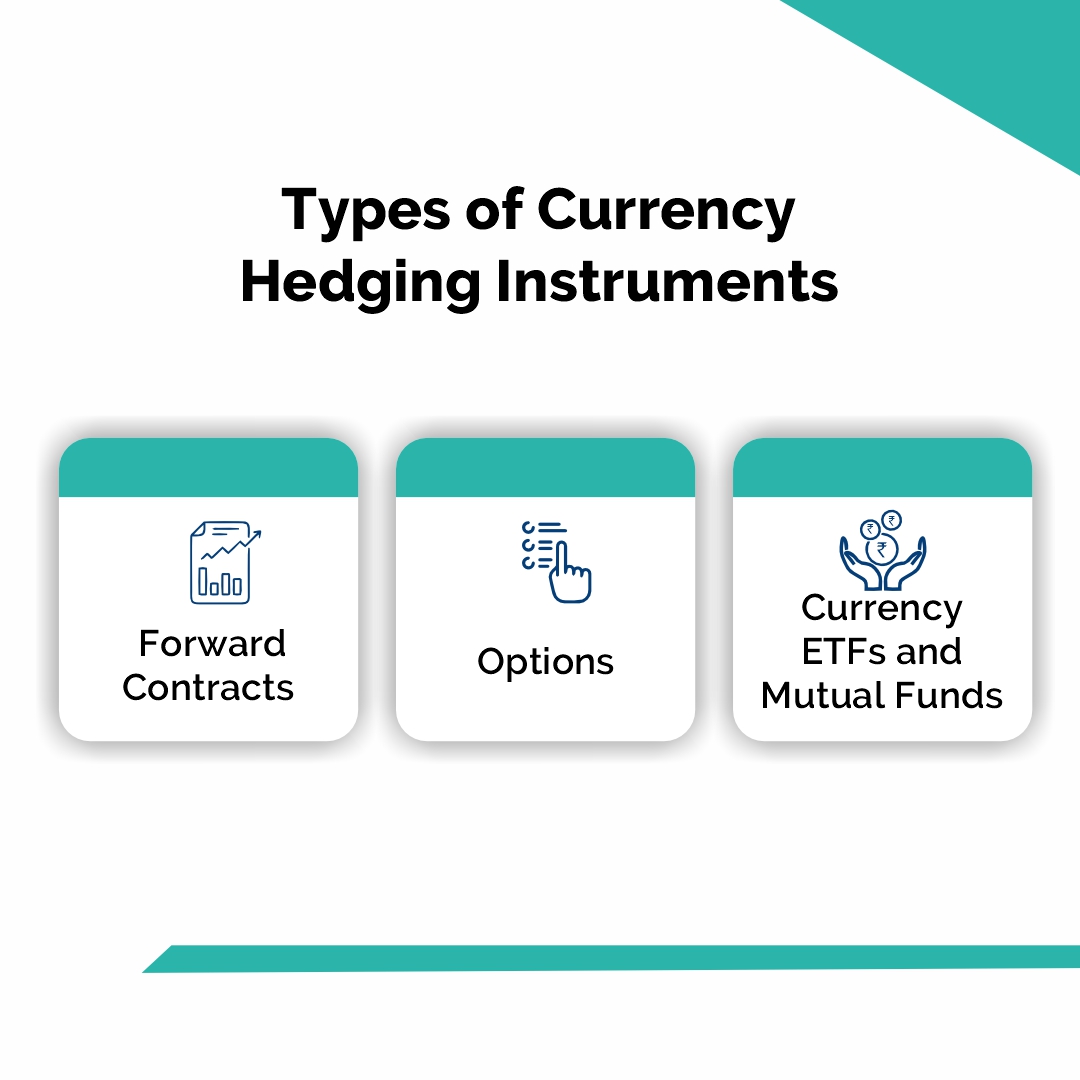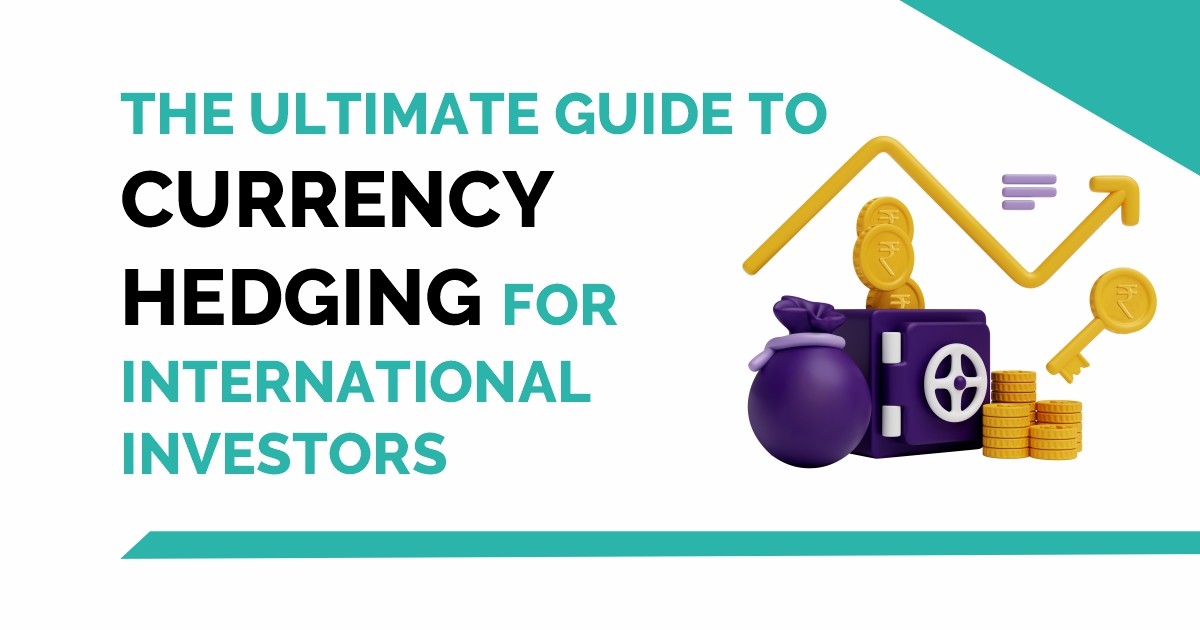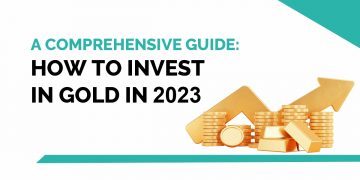International investors use currency hedging as a risk management technique to lessen the impact of exchange rate volatility on their investments. Put more simply, it’s the use of financial methods and instruments to hedge against any losses or volatility brought on by fluctuations in currency prices.
Currency hedging is primarily used to lower the uncertainty brought on by fluctuating exchange rates by stabilizing the value of investments denominated in foreign currencies.
Through currency hedging, investors can protect themselves against the inherent risk associated with currency fluctuations, which can have a substantial impact on the overall returns of foreign portfolios.
Through the application of hedging measures, investors aim to ensure a more stable and predictable investing environment, protecting the value of their assets against
In today’s blog, let us understand how trading in currencies can be used as a hedging strategy. Before that, let us understand first what the risks involved in currency trading-
Table of Contents
Understanding Currency Risk
Exchange rate risk, or currency risk, is the term used to describe the possibility of suffering a financial loss as a result of changes in the value of one currency in relation to another.
When investments are made in foreign currencies, there is a risk of exchange for foreign investors. The danger arises from the fact that a wide range of factors can affect currency prices, and these fluctuations might be unpredictable.
When investors repatriate the gains from their overseas assets to their local currency, they run the risk of experiencing currency fluctuations. Investors may receive less profits than expected if the foreign currency’s value has declined in relation to their native currency.
On the other hand, higher foreign exchange rates can increase profits. Cross-border investments carry a definite currency risk, which can affect a portfolio’s overall performance.
What are the Factors Influencing Currency Fluctuations?
Here are some of the factors that influence currency fluctuations:
1. Rates of Interest
Interest rates are established by central banks, and nations with higher interest rates tend to draw in foreign investment looking for bigger yields. Consequently, a nation with higher interest rates may see an increase in its currency’s value.
2. Financial Measures
Currency values can be influenced by economic indices like GDP growth, employment rates, and manufacturing production. A stronger currency is usually the result of strong economic performance.
3. Rates of inflation
Currency values frequently rise in nations with lower rates of inflation. When a country has lower inflation than one with higher, the purchasing power of its currency is comparatively higher.
4. Political Calm and Economic Capabilities
Foreign investment is drawn to countries with stable political and economic environments, which raises demand for the currency and may cause it to appreciate.
5. Public Debt
Nations with substantial public debt may see a decline in the value of their currencies. Concerns about a nation’s capacity to pay its debts can arise from high debt levels.
What is the Impact of Currency Risk on Investment Portfolios?
Currency risk may have a big influence on investment portfolios and can show up in a number of ways.
1. Volatility of Return
Returns on investments may become volatile due to changes in currency values. When an asset is translated back to the investor’s home currency, the profits could be less than anticipated if the currency in which it is denominated weakens in comparison. On the other hand, a rising foreign exchange rate might increase profits.
2. Impact of Diversification
Adding assets from several nations or regions helps investors diversify their holdings. Although diversification lowers risk, it also raises the possibility of currency danger. The returns could be negatively impacted if the investor’s home currency acquires strength relative to the foreign currencies of their assets.
3. Costs and Benefits of Hedging
With financial instruments like forward contracts and currency options, investors can choose to protect themselves against currency risk. Hedging entails costs but might offer protection against unfavorable currency fluctuations. An investor’s expectations regarding currency changes, investment horizon, and risk tolerance all influence their decision to hedge.
What are the Types of Currency Hedging Instruments?
Businesses and investors use currency hedging as a tactic to reduce the risks brought on by currency volatility. Currency hedging can be accomplished with a variety of tools. These three typical kinds are as follows:

Forward Contracts
A tailored agreement between two parties to exchange a predetermined amount of one currency for another at a later period at a fixed exchange rate is called a forward contract. By locking in a future exchange rate, forward contracts offer protection against unfavourable currency fluctuations.
Options
The right, but not the responsibility, to purchase (call option) or sell (put option) a certain quantity of currency at a fixed price (strike price) before to or on the option’s expiration date is granted to the holder of currency options. Because of its flexibility, options let investors profit from positive currency movements while lowering their risk of loss.
Currency ETFs and Mutual Funds
Hedging can be accomplished with exchange-traded funds (ETFs) and mutual funds that concentrate on currency markets. These funds frequently own currency-tracking derivatives or holdings. With the help of these funds, investors can diversify their holdings and increase their exposure to particular currencies.
It’s critical to remember that every hedging tool has unique benefits and things to keep in mind.
Conclusion
To sum up, efficient currency hedging is an essential part of risk management for global investors. Investors must use careful techniques because of the volatility of foreign exchange markets and the possible effects of currency fluctuations on investment portfolios.
Frequently Asked Questions (FAQs)
What is currency hedging?
Businesses and investors utilize currency hedging as a risk management tactic to guard against any losses brought on by swings in exchange rates. It entails the use of financial tools to lessen or counteract the effects of exchange rate fluctuations on investment portfolios and commercial deals.
Why is currency hedging important?
Currency hedging is crucial because it reduces the risks brought on by exchange rate swings. Exchange rate fluctuations can have a big effect on the volatility and returns of a portfolio for foreign investors. Investors can control this risk and possibly increase the stability of their investment returns by using hedging.
What are the common types of currency hedging instruments?
Options, mutual funds, currency exchange-traded funds (ETFs), and forward contracts are common tools used for currency hedging. These tools offer a range of approaches to managing currency risk, providing flexibility and customization according to the risk tolerance and preferences of the investor.
Visit StockEdge for more Market Updates







